A
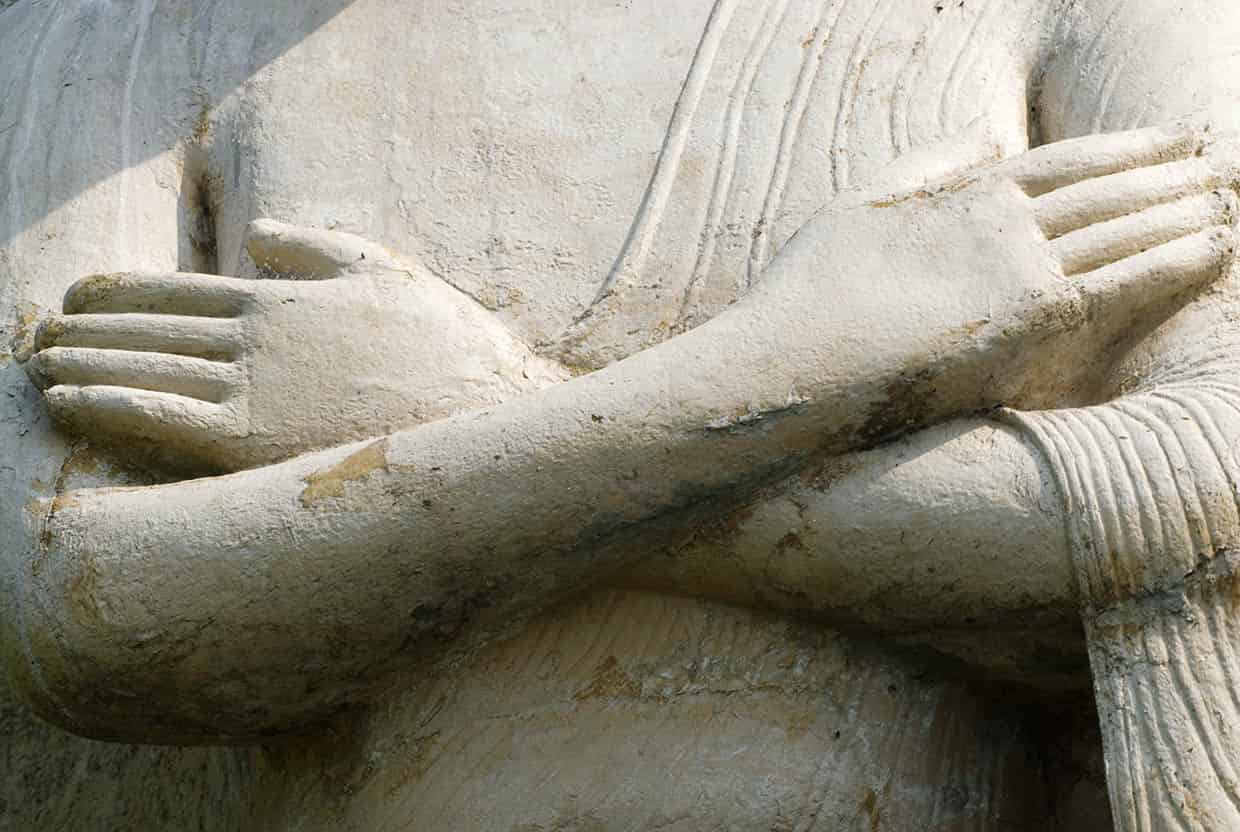
Buddha at the Seema Malakaya, Colombo
Sylvaine Poitau/Apa Publications
Admission charges
Entry fees to state-sponsored institutions like museums, the zoo and the elephant orphanage are based on a two-tier system: tourists pay up to 20 times more than Sri Lankans or foreigners with resident visas. Fees are quoted in US dollars but payable in Sri Lanka rupees. There is no charge at many temples, although some of the most prominent places – most notably Kandy’s Temple of the Tooth and the Dambulla Cave Temples – do levy an entrance fee.
Entrance charges for foreigners have skyrocketed in recent years. Sites in the Cultural Triangle are particularly expensive – $25 at Polonnaruwa and Anuradhapura, and $30 at Sigiriya, for example. Other notable attractions such as the Pinnewala Elephant Orphanage and Colombo Zoo also levy relatively hefty entrance charges, particularly when compared with what locals pay to get in.
Age restrictions
To qualify for reduced entry charges, children need to be under 12. To drive you must be over 18; to drink and go to casinos, at least 18.
B
Begging
Begging is far less common than in neighbouring India; most beggars will be seen congregating by the entrance to temples, churches or tourist attractions. As many of these are clearly elderly, infirm or disabled, it is fair to follow the example of the Sri Lankans, who believe to give is to earn merit and will spare a coin to those they see as genuine beggars. Some beggars deliberately target tourists – donations to a suitable charity may ultimately prove more effective. Opportunistic requests by passing children (and occasionally even adults) for ‘one pen’, ‘one sweet’ or, increasingly, just ‘money’ are also common.
Budgeting
It’s still possible to find double rooms in a simple guesthouses for around Rs2000 a night (although most places cost considerably more), and to eat in basic cafés for Rs1,000 a day (although again, expect to pay double that in more touristy establishments). Realistically, however, you’ll be looking at a minimum of around $40–50 per day per person in order to guarantee comfortable lodgings and decent food (and drink), while the sky’s the limit if you wish to sample the island’s more luxurious hotels and hire your own transport.
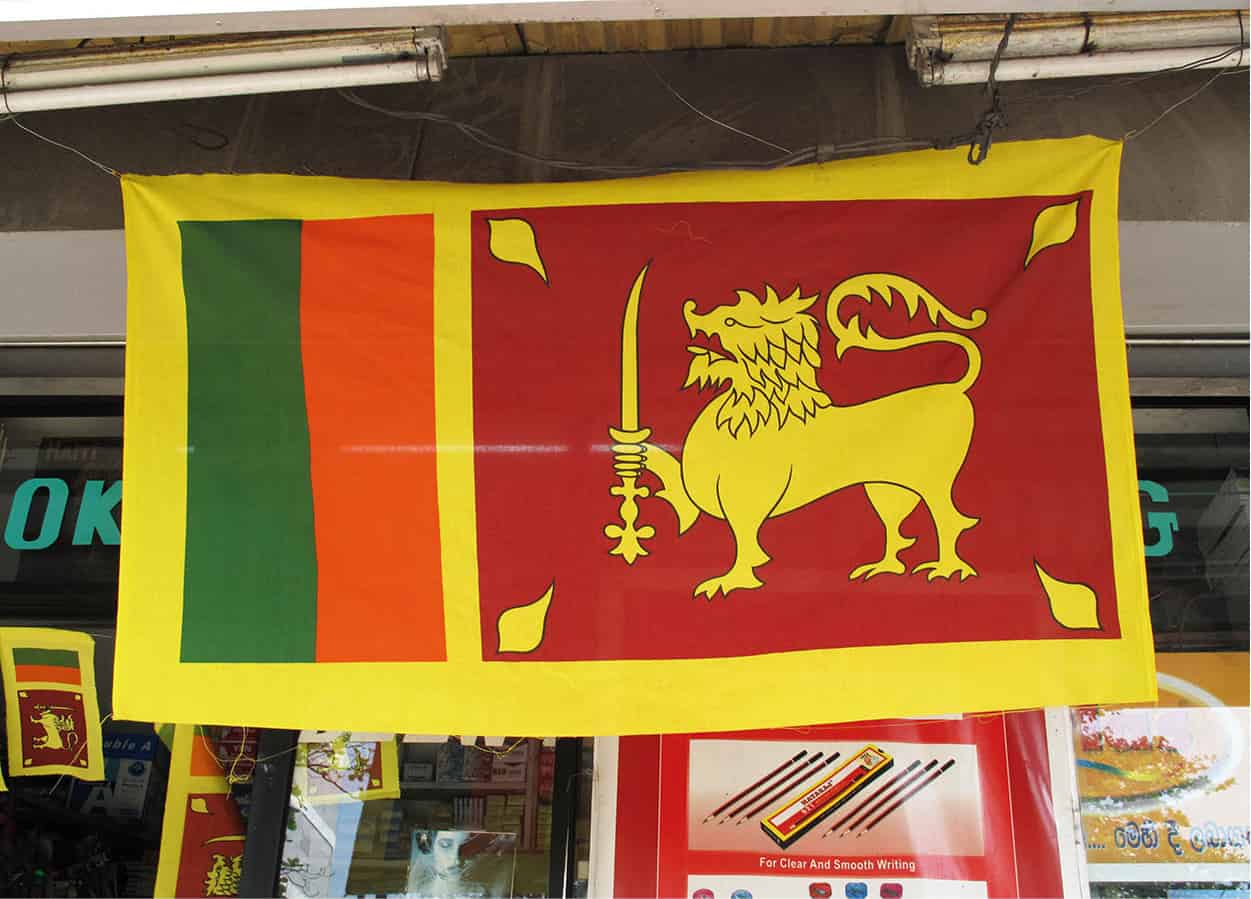
Sri Lankan flag
Sylvaine Poitau/Apa Publications
C
Carbon offsetting
Air travel produces a huge amount of carbon dioxide and is a significant contributor to global warming. If you would like to offset the damage caused to the environment by your flight, a number of organisations do this, using online ‘carbon calculators’, which tell you how much you need to donate. In the UK travellers can visit www.climatecare.org or www.carbonneutral.com; in the US log on to www.climatefriendly.com or www.sustainabletravelinternational.org.
Children
Sri Lankans adore children and make a great deal of fuss over them, and children happily enjoy the country’s beaches, wildlife and exotic sights. Baby food and nappies are available in major supermarkets but are expensive.
Clothing
Cottons and light natural fabrics such as linen are ideal in the lowland heat. Skimpy skirts and brief shorts are not considered respectable (except in tourist hotels and adjacent beach areas), and will attract stares and a certain amount of hassle. For women, loose cotton skirts or trousers and tops, and a long dress or skirt and long-sleeved blouse for visiting temples are ideal. Men will feel comfortable in cotton trousers or shorts and a T-shirt. For climate details, for more information, click here.
Crime and safety
Despite the end of the civil war, the political situation in Sri Lanka remains potentially volatile, and it’s always worth checking the current situation before travelling to the north. There is an underlying threat from terrorism, although these days, international warnings regarding visiting Sri Lanka are considerably lesser than many parts of the world. While significantly reduced since the end of the conflict, security forces maintain a visible presence, particularly in the north and eastern provinces.
Apart from that, Sri Lanka is a reassuringly safe country. Levels of petty crime are far lower than in many other Asian countries, and violent attacks against tourists are relatively infrequent. Nevertheless, it pays to exercise caution and obey common-sense rules. Never flash valuables or leave them lying around; do not let your credit card out of your sight when making payments; avoid dark and deserted beaches at night; and do not accept lifts from strangers.
The most obvious safety hazard in Sri Lanka is traffic: the island has an abysmal record of road-related accidents and you should always stay alert when there’s traffic around – vehicles often behave in unexpected and potentially dangerous ways. If you’re cycling, take extra care.
Swimming is another potential hazard. Dozens of locals and the occasional tourist are drowned every year. If swimming off an unfrequented beach, always check local advice and make sure someone knows you’re in the water. And never swim under the influence of alcohol.
Drugs are a problem in some coastal areas. Do not get tangled up in buying/selling/using them or get involved with those who do: it is illegal and dangerous.
The following websites publish up-to-date travel advisories: www.gov.uk/foreign-travel-advice, www.travel.state.gov, and www.smartraveller.gov.au.
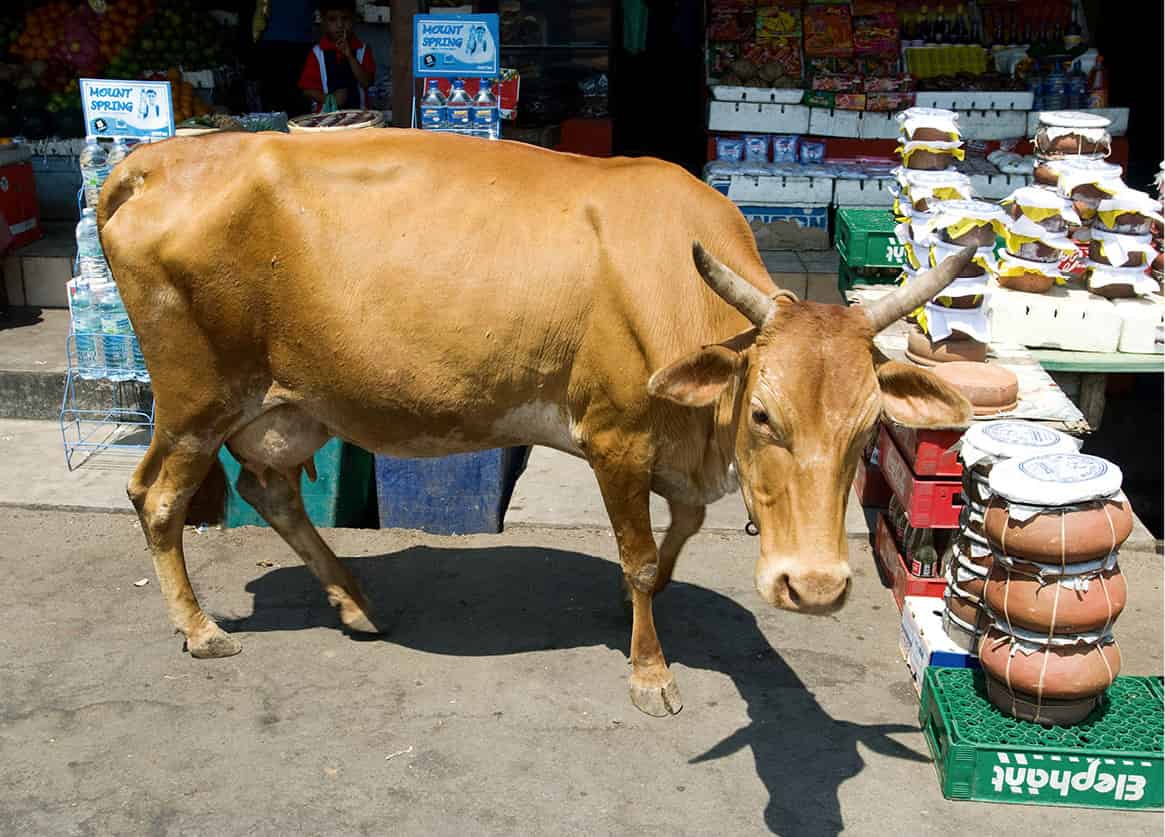
A cow investigates some curd
Sylvaine Poitau/Apa Publications
Customs
If you are bringing in over US$15,000 in cash or traveller’s cheques, or valuable gems and jewellery, this should be declared at customs on arrival, to avoid problems when leaving. Duty-free allowances permit up to 1.5 litres of spirits, 2 bottles of wine, and perfume in a quantity for personal use. Note that you are not allowed to bring duty-free cigarettes into the country. Drugs are illegal, and possession could carry the death penalty.
On departure
Customs officers may check your luggage for items being taken out of the country without a permit. The export of ‘antiques’ (defined as anything over 50 years old) is prohibited without a special licence, as is the export of native fauna and flora.
Unused Sri Lankan currency should be reconverted into foreign currency (foreign-exchange transaction receipts to prove you acquired Sri Lankan currency with foreign currency are technically required, but are almost never asked for).
D
Disabled travellers
Sri Lanka is not well equipped for those with physical disabilities. Only a few of the five-star hotels have access and facilities for people in wheelchairs – public transport has none. Wheelchairs are available at the international airport on prior request through the airlines.
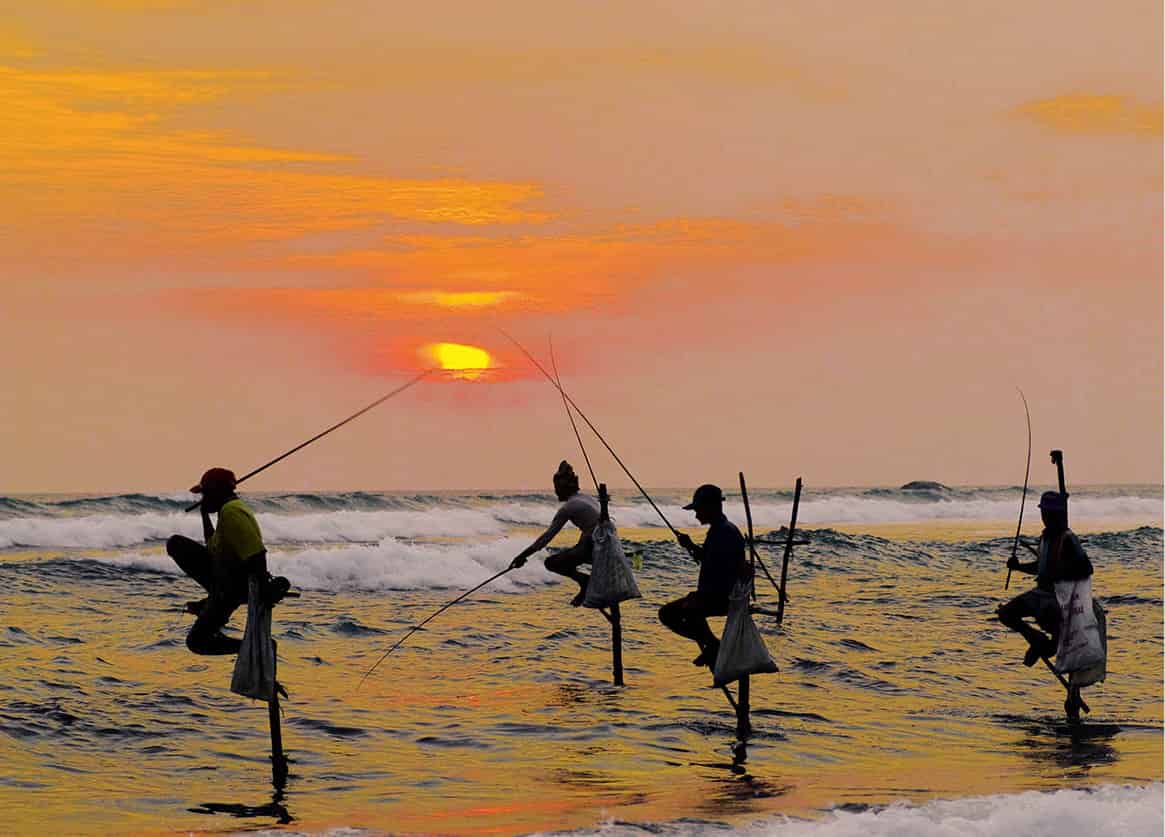
Stilt fishermen
Sylvaine Poitau/Apa Publications
E
Electricity
Sri Lanka uses 230–240 volts, 50 cycles, alternating current. Most sockets are three-pronged, usually with round pins, occasionally with UK-style square pins; adaptors are cheap and readily available from hardware shops. Power often fluctuates, even in the cities.
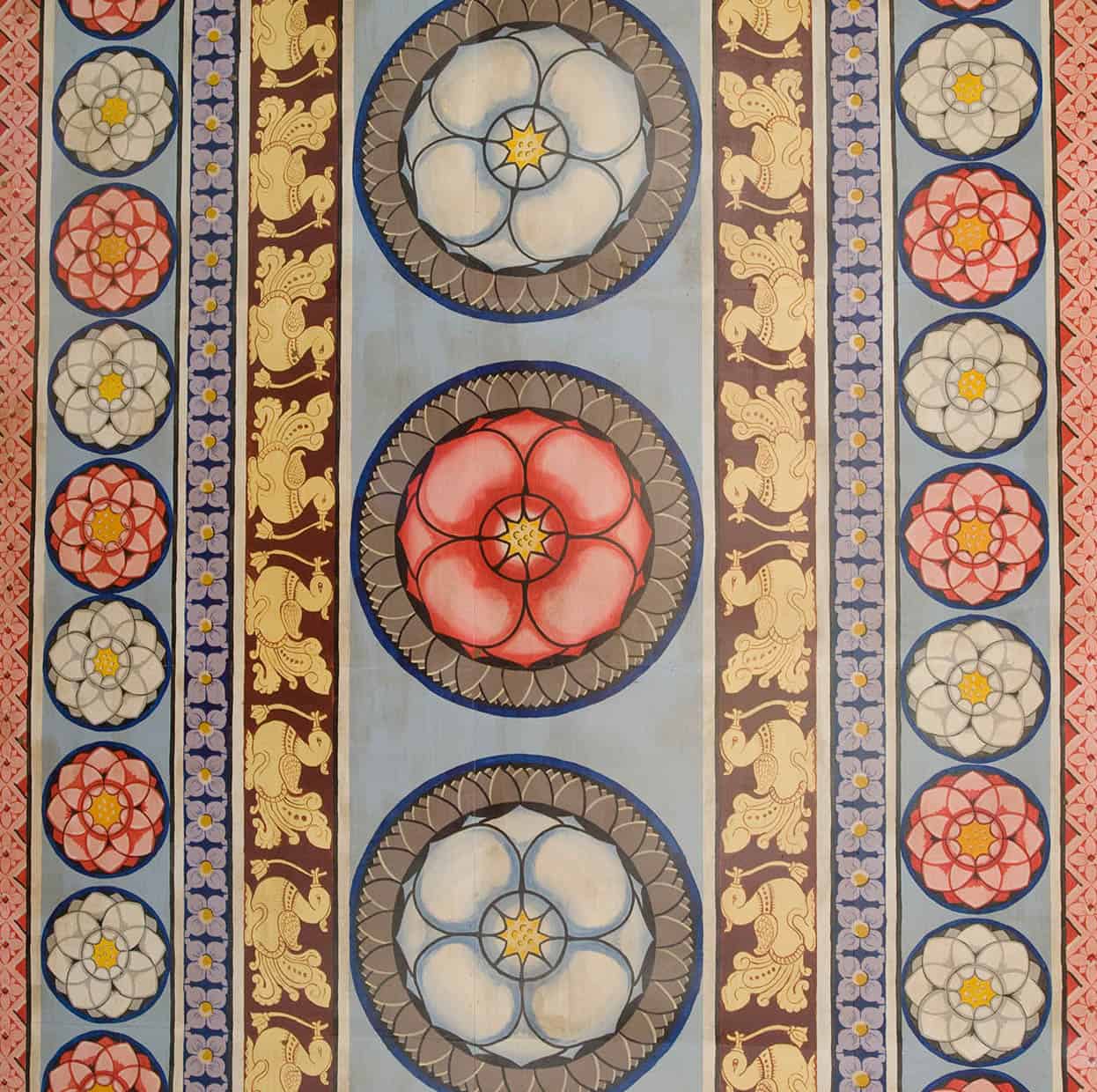
Mural in Anuradhapura
Sylvaine Poitau/Apa Publications
Embassies and high commissions
Australia. Australian High Commission; 21 Gregory’s Road, Colombo 7, tel: 011-246 3200; www.srilanka.embassy.gov.au
Canada. High Commission of Canada; 33A 5th Lane, Colombo 3, tel: 011-532 6232; www.canadainternational.gc.ca/sri_lanka
New Zealand. New Zealand High Commission, New Delhi, India, is accredited to Sri Lanka; www.nzembassy.com
South Africa. South African High Commission; 114 Rosmead Place, Colombo 7, tel: 011-246 3000
UK. British High Commission; 389 Bauddhaloka Mawatha, Colombo 7, tel: 011-539 0639
USA. Embassy of the United States; 210 Galle Road, Colombo 3, tel: 011-249 8500; http://srilanka.usembassy.gov
Emergencies
Fire and Ambulance: 110
Police: 119 (in Colombo), 118 (elsewhere on the island)
Tourist Police: Anuradhapura 025-222 4546; Bentota 034-227 5022; Colombo 011-242 1451; Hikkaduwa 091-227 7222; Polonnaruwa 027-222 3099
Etiquette
Few Sri Lankans use cutlery, most picking up food with their hands, although visitors may feel more comfortable using a spoon and fork. However, food should be handled with the right hand only, as the left is considered unclean. When handing objects to another person, either the right hand or both hands should be used.
Away from the beach, wearing torn T-shirts, skimpy skirts, transparent clothing or displaying bare shoulders is considered highly improper, especially in temples, religious sites or in the presence of monks. When entering holy areas, it is customary to remove your shoes and walk barefoot within the designated area. (This also applies to people’s homes.) Women should wear long skirts or loose trousers and a modest blouse, or a loose cotton dress. Men should wear long trousers. Even ancient ruined temples in archaeological sites are still considered sacred, and should be treated as such.
Public displays of physical affection should be avoided.
When invited to a home, it is customary to bring fruit, tea or biscuits or some other small gift. Small presents from one’s home country are very much appreciated.
Courtesy is an inherent part of Sri Lankan culture, and one which you should reciprocate. The loss of temper and raising of voices will cause offence, and is very unlikely to further your cause, whatever it is. Many Sri Lankans habitually ask personal questions of all foreigners they meet: you will regularly be asked your country, possibly followed by your age, marital status and number of children. Although such questioning by strangers might be considered intrusive in Western societies, in Sri Lanka these are ordinary questions and simply reflect the emphasis locals place on family life. You may also find yourself being stared at every now and then – not something that’s considered rude in the same way as it is in the West.
Waggling the head from side to side is not a negative gesture but a slightly ambiguous gesture meaning either yes, or at least that the matter is being considered.
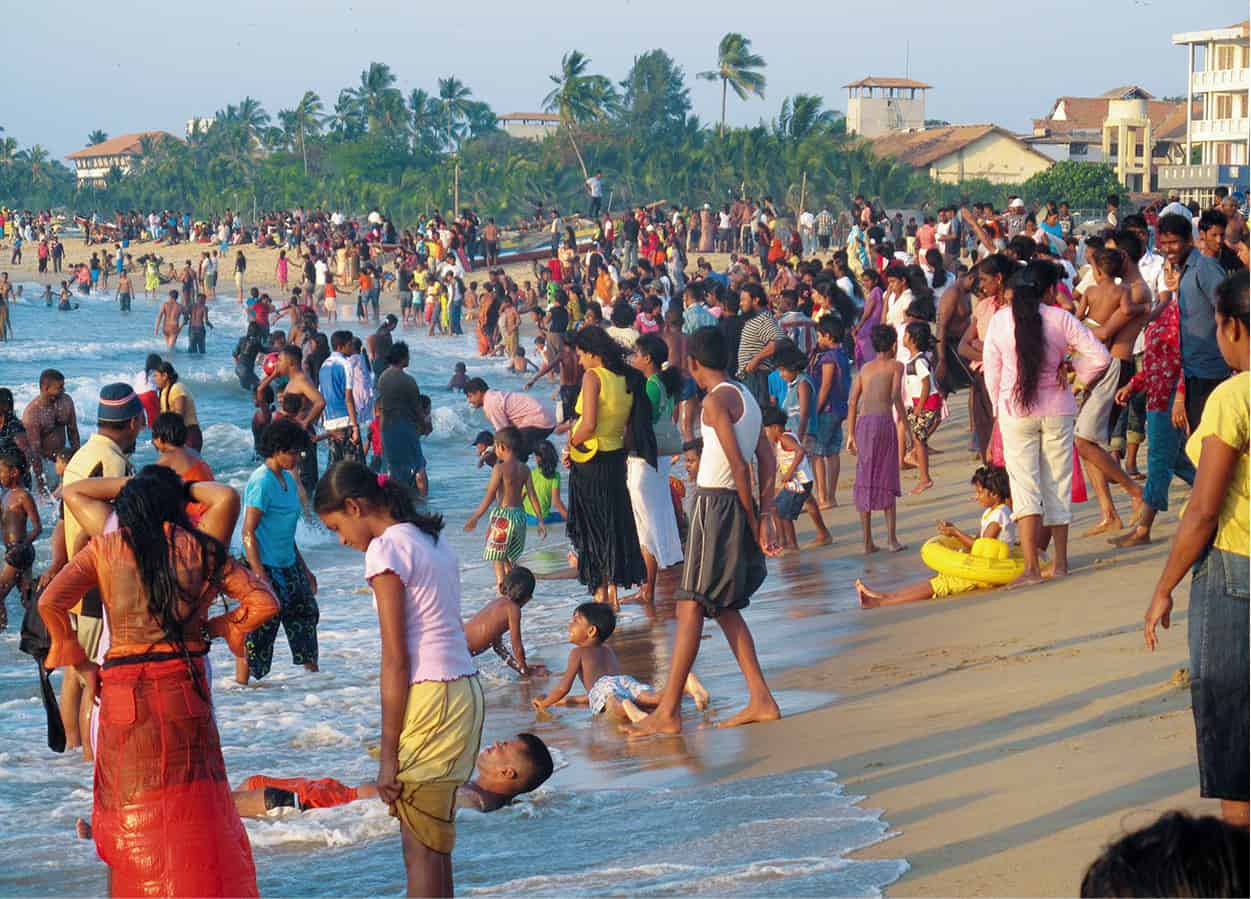
National Day festivities in Negombo
Sylvaine Poitau/Apa Publications
G
Gay and lesbian travellers
Homosexuality is illegal in Sri Lanka, so discretion is advised.
Green issues
There is a burgeoning awareness of green issues in the country, particularly when it comes to the tourist industry, with government authorities keen to promote the island’s ecological credentials – although cynics might argue that this has more to do with cashing in on a potentially lucrative subsection of the tourist trade rather than with real actions on the ground. Nevertheless, eco-awareness increasingly extends to many parts of the island, with hotel chains, tour operators, tea plantations and so on all keen to establish their environmental credentials through a range of initiatives including recycling, organic farming, water-harvesting and so on.
H
Health
Inoculations
Proof of immunisation is not normally required, unless you have passed through an infected area within 14 days prior to your arrival. It is, however, advisable to ensure your immunisations for diphtheria, tetanus, hepatitis A and polio are topped up.
Be aware that all regions of Sri Lanka experience outbreaks of the mosquito-born dengue fever. During the first part of 2015, over 15,000 suspected dengue fever cases were reported. Almost half of them occurred in Western Province, where Colombo lies.
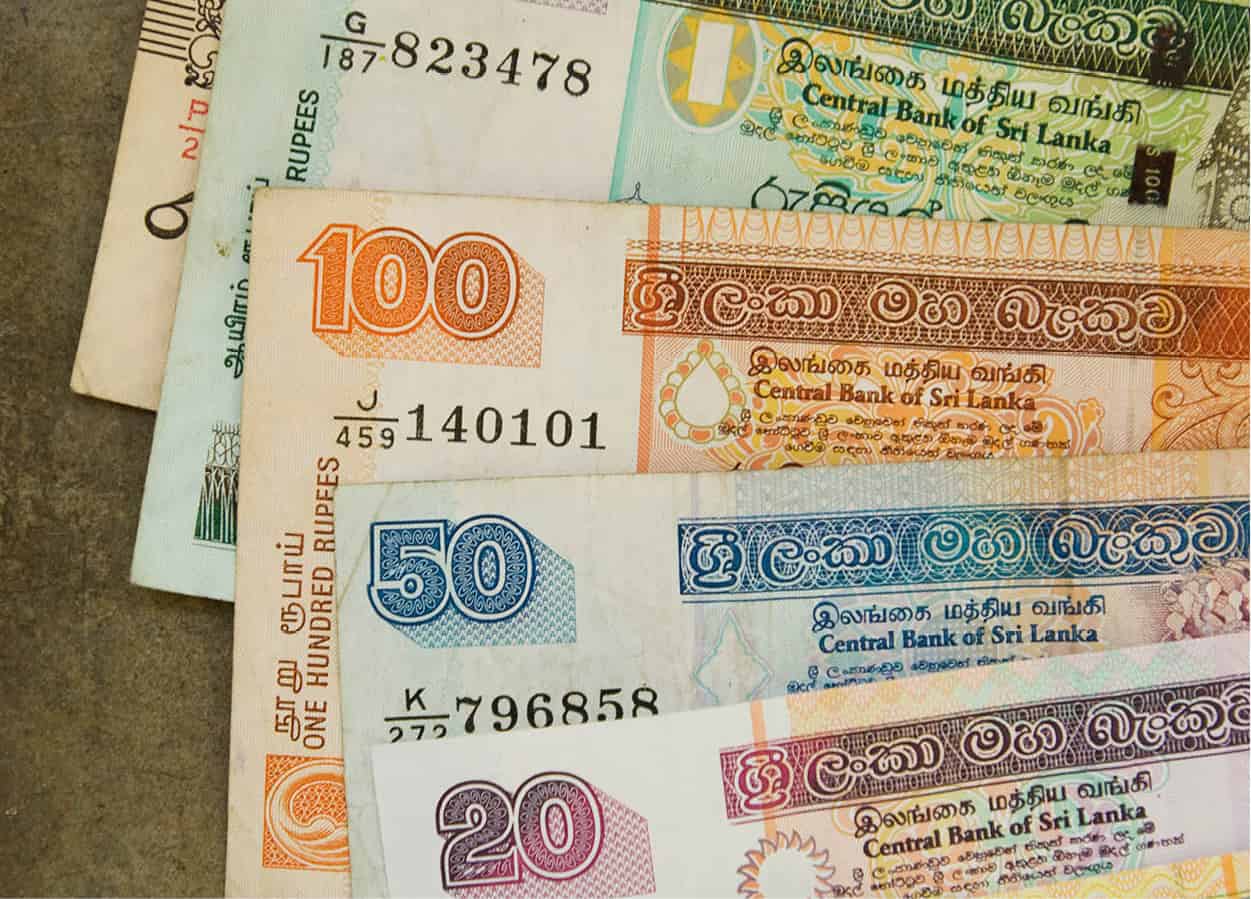
Sri Lankan banknotes
Sylvaine Poitau/Apa Publications
Healthcare and insurance
The Sri Lankan health service does not provide free treatment for visitors, so your own insurance is vital.
Hospitals
Private doctors and good private hospitals are to be found in Colombo and tourist areas. The medical care at Colombo’s private hospitals, centred around Nugegoda, is excellent and inexpensive, if a little informal (visitors are allowed at any time), and some tourists visit Sri Lanka specifically for medical treatment in private hospital rooms furnished like hotels. In Colombo, these include the Apollo, 578 Elvitigala Mawatha, Colombo 5, tel: 011-543 0000; the Nawaloka, 23 Sri Sugathodaya Mawatha, Colombo 2, tel: 011-254 4444, www.nawaloka.com; and Oasis, 18A M. E. D. Dabare Mawatha, Narahenpita, Colombo 5, tel: 011-550 6000, www.oasishospital.lk; in Galle, the Ruhunu Hospital, Karapitiya Road, tel: 091-223 4059.
Pharmacies
Most Western medicines are available, and so are many Indian substitutes. The Colombo branch of the state-run Osusala Pharmacy (255 Dharmapala Mawatha/Lipton Circus, Colombo 7; tel: 011-269 4716) is open 24 hours and every town has several pharmacies.
Hours and holidays
Hours
Government offices, including post offices, and businesses observe a five-day working week, opening Monday to Friday from around 8.30 or 9.30am and closing around 4.30 or 5.30pm. Banks open Monday to Friday from 8 or 9am until 1 or 3pm; some branches also open on Saturday mornings. All shops and banks close on public holidays. Most branches of Keells and Cargills supermarkets are open 8am–8pm every day. In small towns, the shopping hours depend on the shop owner; many open late and on Sunday.
Public holidays
Public, bank and Poya (full moon) holidays change every year as they are based on lunar cycles. The constant national holidays are: 4 February – Independence Day; 1 May – May Day; 25 December – Christmas Day.
The Muslim holidays of Id-Ul-Fitr (Ramadan Festival Day), Id-Ul-Allah (Hajji Festival Day) and Milad-Un-Nabi (Holy Prophet’s Birthday) are also national holidays celebrated on different days each year, according to the cycles of the Muslim calendar.
Other holidays usually occur in the following months:
January: Tamil Thai Pongal, Durutu Poya
February: Navan Poya
March: Mahasivarathri, Medin Poya
March/April: Good Friday
April: Day prior to Sinhalese/Tamil New Year, Sinhalese/Tamil New Year, Bak Poya
May: Vesak Poya and day after
June: Poson Poya
July: Esala Poya
August: Nikini Poya
September: Binara Poya
October: Vap Poya
October/November: Deepavali
November: Il Poya
December: Unduvap Poya
I
Internet
Internet cafés are widely found even in the smallest towns, with most places charging in the region off Rs75–150/hour. Increasing numbers of hotels, guesthouses and cafés are now offering Wi-fi (usually free to guests and customers).
L
Language
The main language is Sinhala, spoken by around 75 percent of the population. Tamil is the first language of around 25 percent, as both Tamils and east-coast Muslims speak it. English serves as the language of business and tourism and is spoken well by around 10 percent of the population, while many more can communicate adequately. Sinhala-speakers generally respond to foreigners’ attempts to speak their language with incomprehension and prefer to practise their English instead. For more information, click here for some helpful phrases in Sinhala and Tamil.
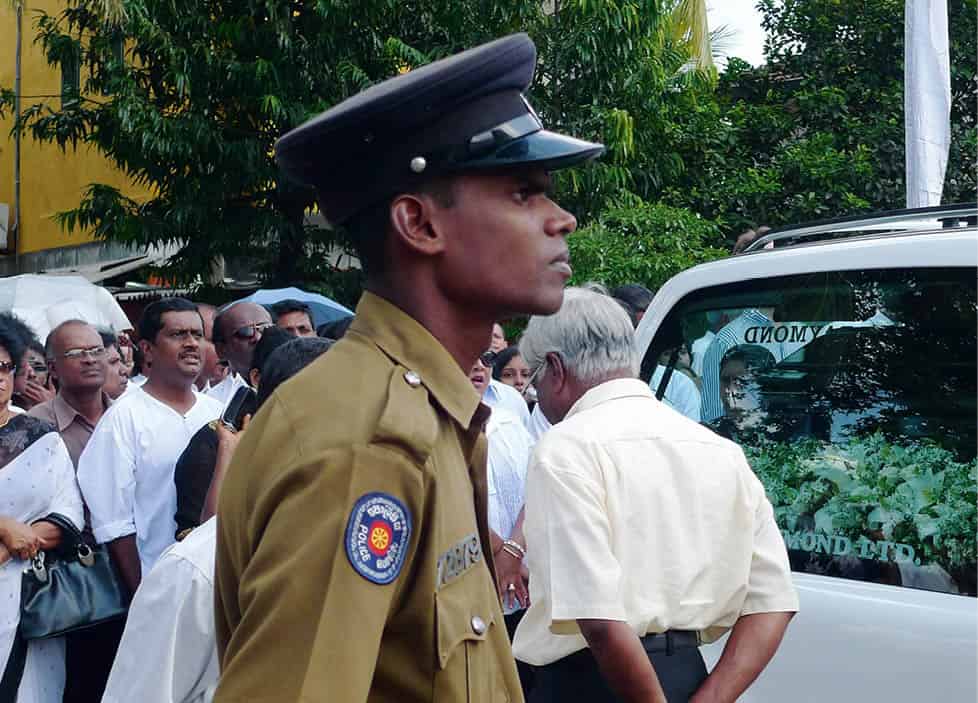
Policeman
Indi Samarajiva
M
Maps
Useful for finding your way around Colombo and the major towns is Arjuna’s A–Z Street Guide, available from Colombo bookshops. If you have any trouble with finding a place you would like to visit, contact the Tourism Hotline on tel: 1912 (only in Sri Lanka).
Media
Newspapers
Sri Lanka has three daily English newspapers and three Sunday newspapers with island-wide circulation; these are mainly available from stalls and pavement sellers. The Daily News (www.dailynews.lk) and the Sunday Observer (www.sundayobserver.lk) are state-controlled and thus serve as mouthpieces for the government. Independent newspapers include The Island and Sunday Island (www.island.lk), and the Daily Mirror (www.dailymirror.lk) and its sister publication the Sunday Times (www.sundaytimes.lk). While international magazines such as Newsweek and Time can be bought locally, foreign newspapers cannot. The free monthly magazine Explore Sri Lanka carries feature articles as well as information of interest to visitors.
Radio
There are several English-language radio stations churning out mainstream pop music and cheesy chat. The best is TNL Radio (101.7 FM; www.tnlrocks.com); others worth a listen are Yes FM (89.5 FM; www.yesfmonline.com) and Sun FM (99.9 FM).
Television
Sri Lankan television is unlikely to take up much of your time; both state and private channels broadcast mainly in Sinhala or Tamil, and what little English-language programming there is tends to be fairly dire. Satellite television is available island-wide with international news channels.
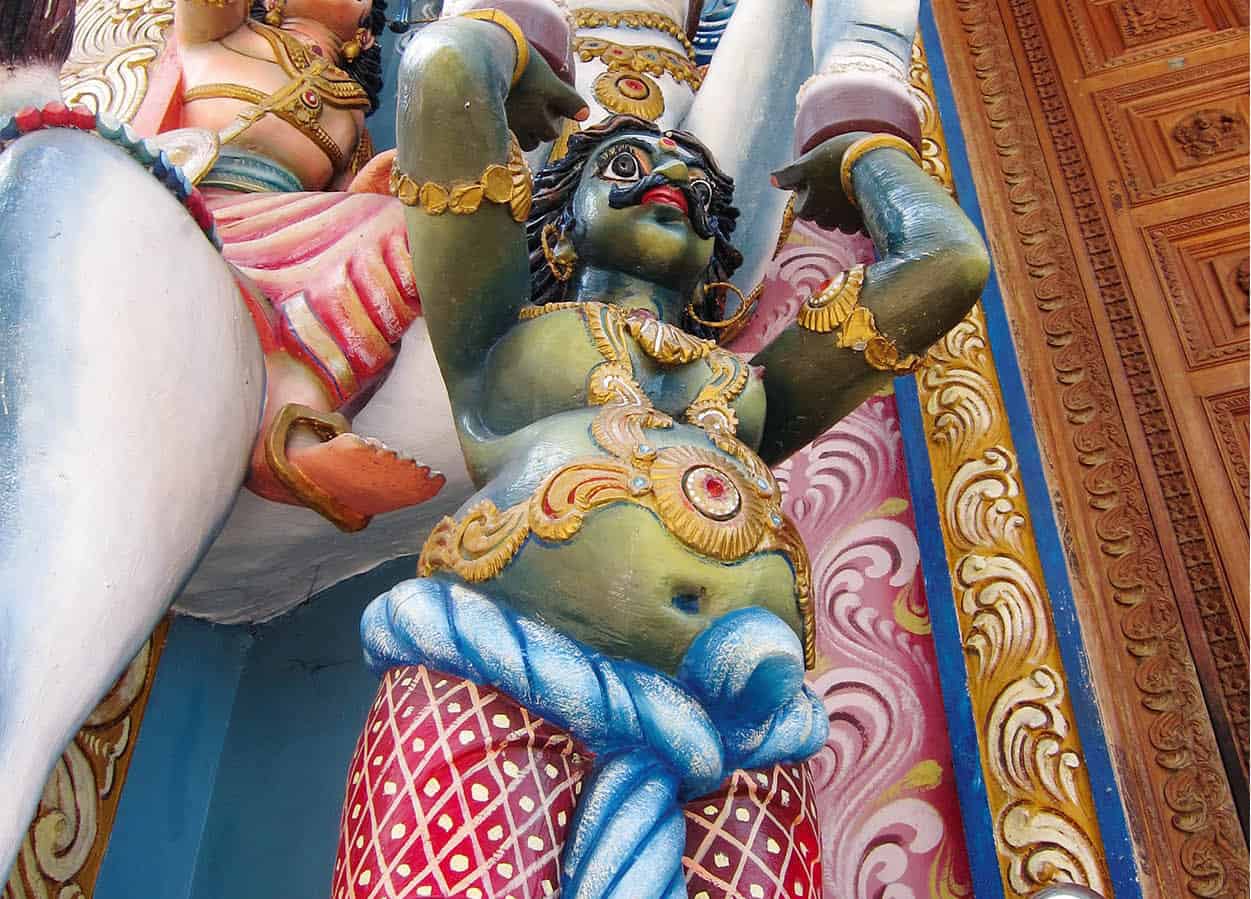
Pettah temple
Indi Samarajiva
Money
Currency
The national currency is the Sri Lankan rupee. Coins come in denominations of one, two, five and 10 rupees, and notes in denominations of 10, 20, 50, 100, 500, 1,000, 2,000 and 5,000 rupees.
Credit cards
Most hotels, restaurants and shops accept credit cards. Visa and MasterCard are widely accepted; American Express and Diners Club less so. Be careful of credit card copying and don’t allow your card out of your sight.
ATMs
There are hundreds of ATMs across the island that accept foreign Visa and/or MasterCards; every town of any consequence will have at least one such machine where there is a bank.
Exchanging money
All banks change traveller’s cheques, with Thomas Cook and American Express being the most widely recognised. The rate for traveller’s cheques is better than for cash. Money can also be withdrawn on credit cards in banks, though it’s generally easier and faster just to use an ATM (see above).
Tipping
Most hotels and restaurants add a 10 percent service charge to the bill, but you may wish to leave a tip if a service charge isn’t included – and indeed even if it is, since there’s no guarantee the additional service charge will find it’s way to the person who actually served you. Chauffeurs and guides will also expect to be tipped somewhere in the region of US$5–10 per day, depending on their skills and helpfulness. Guides who show you around temples will expect a small tip (Rs100 should suffice, although do not give money directly to monks, but place it in a donation box).
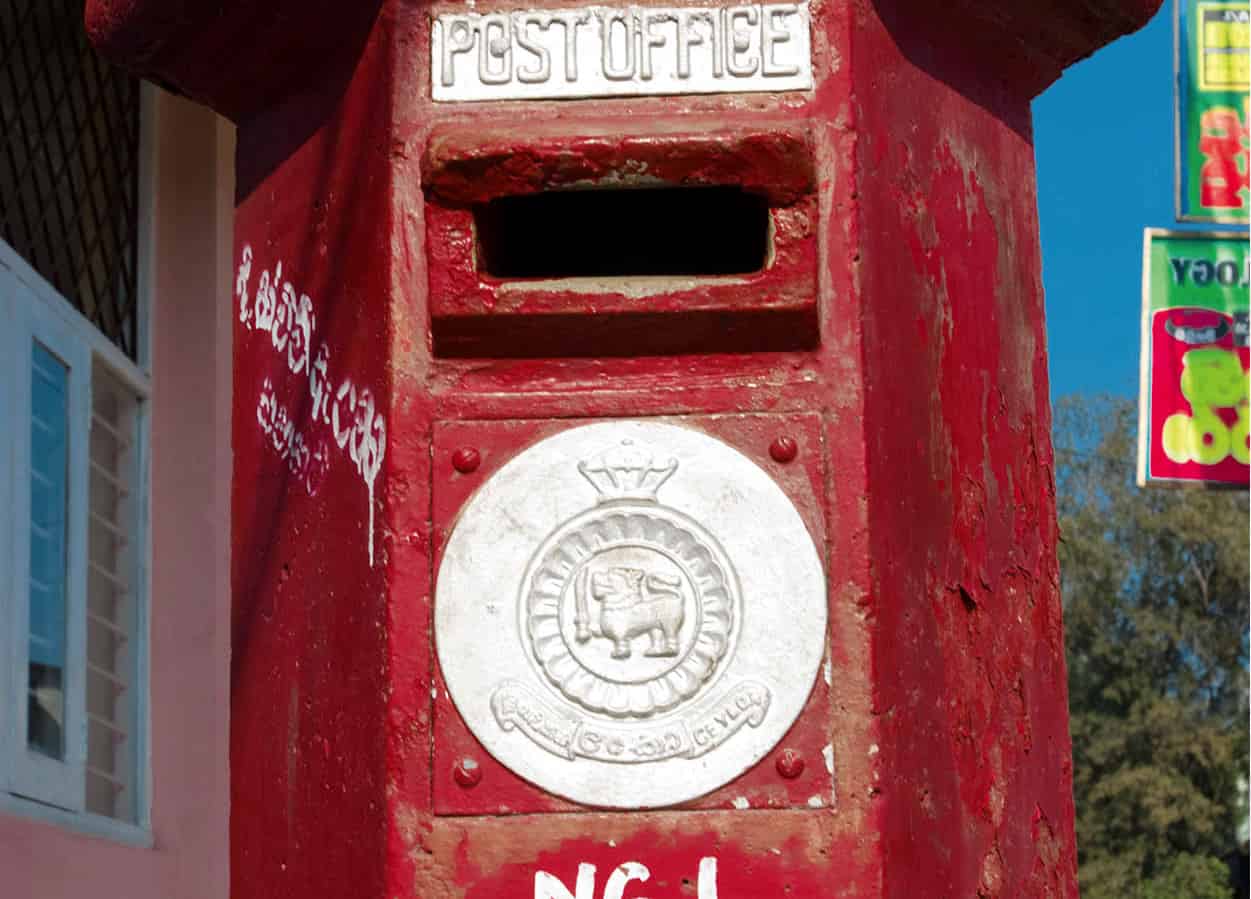
Post your letters here
Sylvaine Poitau/Apa Publications
P
Police
Sri Lankan police are generally friendly with foreigners, but if you have a problem or need to report a crime, it is best to take a Sinhala-speaking local with you. There are tourist police offices in a few towns, but these have little knowledge of tourism or tourists. If you have anything stolen and want to make an insurance claim, you will need a police report. The police uniform is khaki.
Post
When sending airmail letters or cards with stamps, make sure that they are franked in front of you at the post office counter. International courier services include the following:
DHL, 340 Galle Road, Colombo 3, tel: 011-438 4792
FedEx, 93 1/1 Chatham Street, Colombo 1, tel: 011-254 4357
R
Religion
There are four major religions in Sri Lanka: Buddhism (practised by roughly 70 percent of the population), Hinduism (15 percent), Christianity (7 percent) and Islam (7 percent). Almost all Sinhalese are Buddhist (there is a small number of Christian Sinhalese). The majority of Tamils are Hindu, though there are also significant numbers of Tamil Christians.
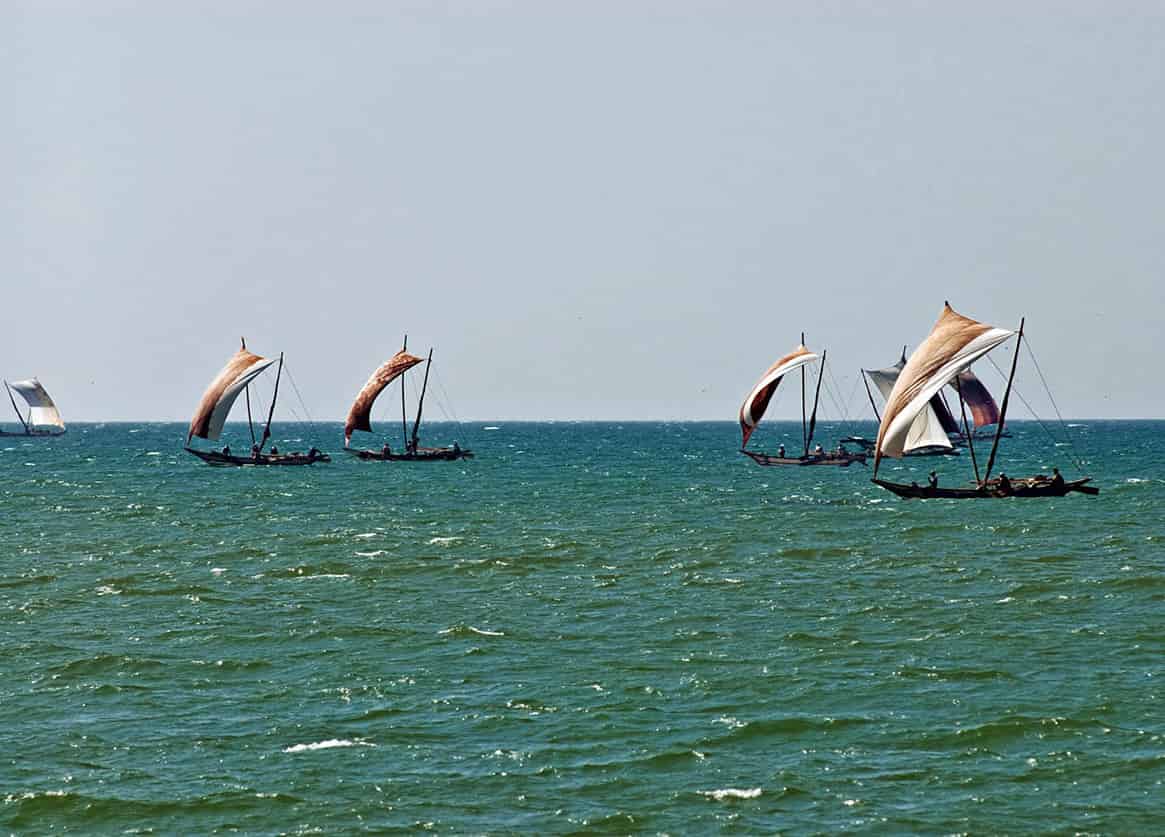
Negombo fishing vessels at sea
Sylvaine Poitau/Apa Publications
S
Smoking
The rules are confused but generally mean you can smoke when dining out of doors, on a hotel’s open-air terrace or in a restaurant’s garden but, curiously, smoking is allowed in some hotel lounges if they have less than a specified number of guests, and in pubs, bars and casinos.
T
Telephones
There are several mobile-phone service providers; a local prepaid mobile-phone account can be set up easily.
The international dialling code to contact a number in Sri Lanka is 00 94. The first digit (0) of the phone numbers given in this guide should be omitted when telephoning from overseas. When telephoning someone in Colombo from a Colombo number, omit the 011 prefix.
Time Zone
Sri Lanka’s clocks are set at Coordinated Universal Time UTC (GMT) +5.5 – in other words 5.5 hours ahead of GMT in winter, and 4.5 hours in summer. Sri Lanka is 4.5 hours behind Australia in winter and 5.5 hours in summer; or 10.5 hours ahead of New York in winter, and 9.5 in summer.
Toilets
Public toilets are virtually non-existent: in an emergency, head for the nearest hotel or decent pastry shop. It is prudent to carry a cache of toilet paper in case none is available.
Tourist information
The Sri Lanka Tourist Promotion Bureau has its own website with stacks of information (www.srilanka.travel). The head office is at 80 Galle Road, Colombo 3 (Mon–Fri 8.30am–4pm), tel: 011-242 6900, and there is a 24-hour counter in the arrivals hall (after customs) at the Colombo International Airport, tel: 011-225 2411, and in the Kandy City Centre mall (daily 8.30am–5pm), tel: 081-222 2661.
Overseas offices include:
UK. Sri Lanka Tourist Office, 1 Devonshire Square, London EC2M 4WD, tel: 0845-880 6333.
Transport
Airports – arrival and departure
Sri Lankan Airlines (airline code UL – or ‘usually late’ as the local joke goes) operates daily non-stop flights between Colombo and London Heathrow and some flights via the Maldives, as well as direct from Frankfurt, Paris and Rome. Other flights from Europe necessitate a change of planes in the Middle East. As well as UL, major airlines serving Colombo include British Airways, Cathay Pacific, Emirates, Etihad, Oman, Qatar, Royal Jordanian, Singapore and Thai. The airport is also served by regular charter flights from Europe.
Colombo International Airport is bright and usually functions smoothly; there are duty-free shops for arriving passengers after immigration. After emerging from customs there is a lobby with banks (including an ATM), hotel and taxi counters. You can book a taxi to Colombo there for about Rs3000. Alternatively, free shuttle buses run every 30min to nearby Averiwatte bus station, from where onward buses run to Colombo, Kandy and Negombo, although it’s a slow and crowded experience, and not great if you’ve just stepped off a long-haul flight.
On departure, porters are available and are worth it (Rs50 a bag) for getting you through the queues and luggage X-ray efficiently. Departure tax is included in the cost of your airline ticket.
Public transport
Bus. Buses reach pretty much every town or village of any significance anywhere on the island, though services are often slow, crowded and uncomfortable. Government buses (usually painted red or orange) are incredibly cheap but stop absolutely everywhere and usually get horribly packed – best avoided except for very short journeys. Private buses come in various standards and sizes – from big old rust buckets which are similar in speed, cost and comfort to government buses, ranging up through ‘semi-express’ and ‘express’ services, which tend to make fewer stops and thus reach destinations a bit faster. The fastest vehicles, called ‘inter-city expresses’, usually have air-conditioning, tinted windows and padded seats. These make only limited stops and don’t accept standing passengers (at least in theory) and go pretty fast, sometimes recklessly so.
Train. Sri Lanka’s antiquated railway system offers a charming – if slow – way of getting around the island, especially on the scenic hill-country line. Fares are low, though carriages can often get ridiculously overcrowded, and delays are the norm rather than the exception. There are three main lines starting from Colombo: the Coast Line runs north to Negombo and Puttalam and south to Galle and Matara (currently the line is being extended up to Beliatta, and there are plans to further extend it to Kataragama); the Main Line goes east, via Kandy, to Nanu Oya and Badulla; and the Northern Line goes via Anuradhapura to Vavuniya. A side branch of the Northern Line goes to Trincomalee, while another goes to Polonnaruwa and Batticaloa. For more information contact Train Enquiries on 011-242 1281 or visit www.railway.gov.lk.
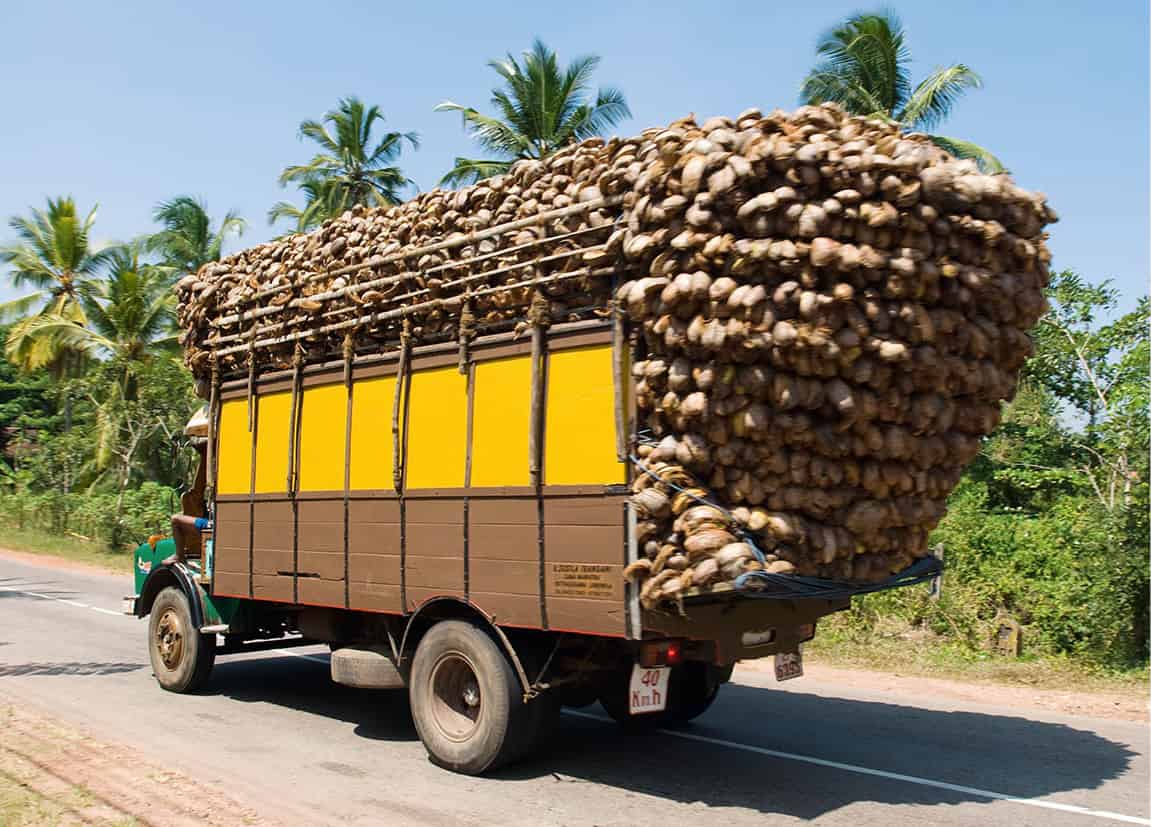
Truck bearing a heavy load
Sylvaine Poitau/Apa Publications
Tuk-tuks and taxis
Tuk-tuks Motorised rickshaws (also known as tuk-tuks, trishaws, three-wheelers or just ‘taxis’) can be found everywhere in Sri Lanka and offer the most convenient way of making short journeys. They can also sometimes be useful for longer journeys in places which lack public transport. These noisy little vehicles can travel at surprising speed through busy traffic, and offer a fun – if sometimes slightly nerve-wracking – way of getting around. Rickshaws aren’t generally metered except in Colombo, where increasing numbers of metered vehicles can be found, currently charging Rs50/km. Assuming you’re going in an unmetered rickshaw, you’ll need to agree the fare before setting off, and be prepared to bargain. Rickshaw drivers vary enormously in how much they’ll try to overcharge you by: many are fairly honest, though a few are complete rogues. You’ll usually pay a bit more in big cities like Colombo and Kandy, and less in more rural areas; the more touristy the area you’re in, the more you’re likely to need to barter to get a reasonable fare. It’s also a good idea to have the correct change for your journey, since rickshaw drivers often claim not to have any change, in the hope that you’ll let them keep the difference.
Note that a proportion of hotels and guesthouses (and also some shops, spice gardens and restaurants) pay rickshaw drivers commission for bringing them business, meaning that certain drivers may attempt to steer you away from a place that doesn’t pay commission to another place that does. Ignore any driver who tells you that your chosen hotel is full, has shut down, is derelict or teeming with rats – they may conceivably be telling the truth, but it’s always a good idea to check for yourself. Remember too that if a hotel pays commission to a rickshaw driver, they’ll most likely try to charge you a higher rate to compensate.
Taxis. As well as the ubiquitous motorised rickshaws (tuk-tuks), there are metered taxi services in Colombo, but they don’t cruise or wait on the street like tuk-tuks and have to be booked by telephone. Some taxi firms with fixed rates per km: Kangaroo Cabs, tel: 011-2 588 588 and GNTC, tel: 011-268 8688. Away from the capital, ‘taxis’ are minivans; in most towns they congregate near bus stations waiting for custom, or can be arranged through your hotel.
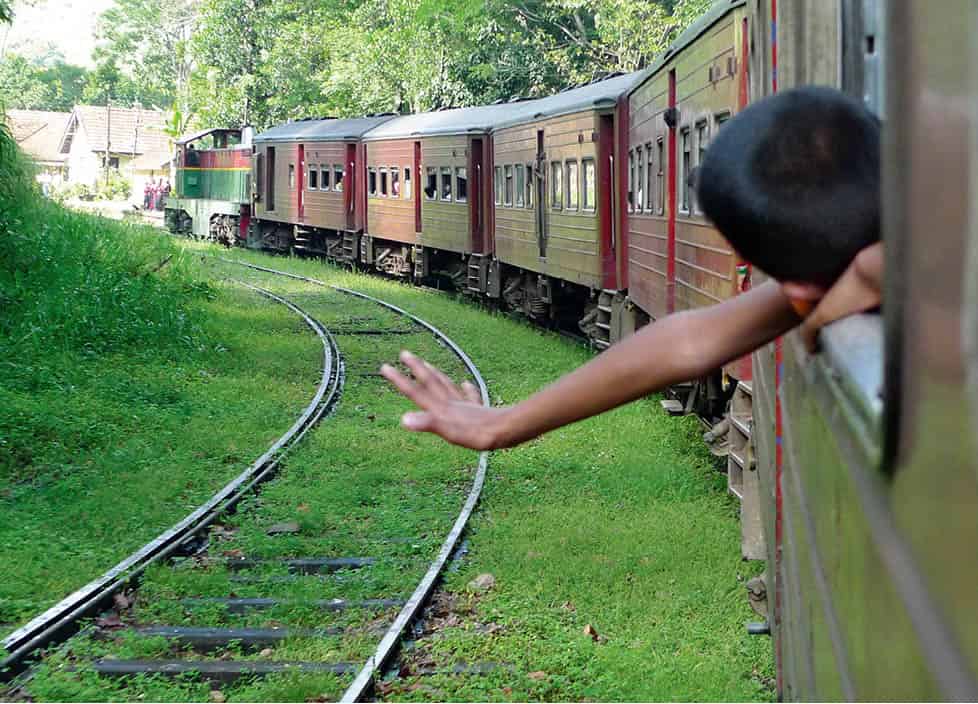
Rail is a charming way to explore Sri Lanka
Indi Samarajiva
Driving
Sri Lanka’s anarchic traffic and idiosyncratic road rules make driving a challenge for foreigners. If you don’t absolutely have to drive, the best option is to hire a car with a driver – which is often no more expensive than hiring a self-drive car. If you’re determined to drive, you’ll need an international driving licence, plus an additional permit (Rs1500, issued on the spot) from the Automobile Association of Ceylon (tel: 011-242 1528), 40 Sir Macan Markar Mawatha, just off Galle Face Green in Colombo.
Car Rental. Firms include Quickshaws, tel: 011 258 3133, www.quickshaws.com; Casons Rent-A-Car, tel: 011 440 5070; www.casonscar.com; Mal-Key Rent-A-Car, tel: 011-236 5251; www.malkey.lk.
Chauffeur-driven cars. Cars driven by chauffeur-guides can be arranged through your hotel, or you could get a quotation from a taxi company (see above) for an out-of-town tour.
V
Visas and passports
Nationals from all countries apart from the Maldives and Singapore now require a visa, or ‘ETA’ (Electronic Travel Authorization) to visit Sri Lanka. These can either be obtained online before you arrive at www.eta.gov.lk or on arrival at the airport. The fee for a tourist visa is currently $30 if bought in advance online ($15 for citzens of SAARC countries), or $35 if bought on arrival. The visa is valid for 30 days and for two entries. Passports must be valid for six months after arrival.
Visa extensions are given at the Immigration Service Centre (unit 01, Liberty Arcade Building, 282 R A De Mel Mawatha (Duplication Road), Colombo 3; tel: 011 237 5972; www.immigration.gov.lk). The charge is based on what your own country charges a visiting Sri Lankan (see the website for a complete list of fees). Conditions for extensions are an onward ticket and proof of sufficient funds to support oneself while in the country, calculated at US$15 a day (a credit card should suffice). Proof of money spent in the country may be required, so keep all traveller’s cheque/ATM receipts. Extensions normally take an hour or two to process.
W
Websites
As well as the useful websites listed elsewhere in this book, the following may also be of interest:
www.srilanka.travel – Official website of the Sri Lanka Tourism Promotion Bureau.
www.lankalibrary.com – Eclectic treasure trove of weird and wonderful information about the island.
www.priu.gov.lk – Official website of the government of Sri Lanka, with links to major government departments.
Weights and measures
Sri Lanka uses the metric system; roads are marked in kilometres.
Women and solo travellers
Sri Lankan society is rather traditional in outlook, and the way you dress contributes greatly to people’s opinion of you, and also to the way they behave towards you. Women and solo travellers should dress conservatively (at least away from established tourist beaches) and be firm, even rude, to unwarranted attention.
Unfortunately, solo travellers, whether male or female, especially on beaches, will attract attention from male opportunists who refuse to believe you really want to be left alone. To deter them, walk away and avoid conversation – and definitely eye contact – as this is seen as encouragement. On trains or buses, be wary of the male who sits beside you when there are plenty of seats elsewhere.